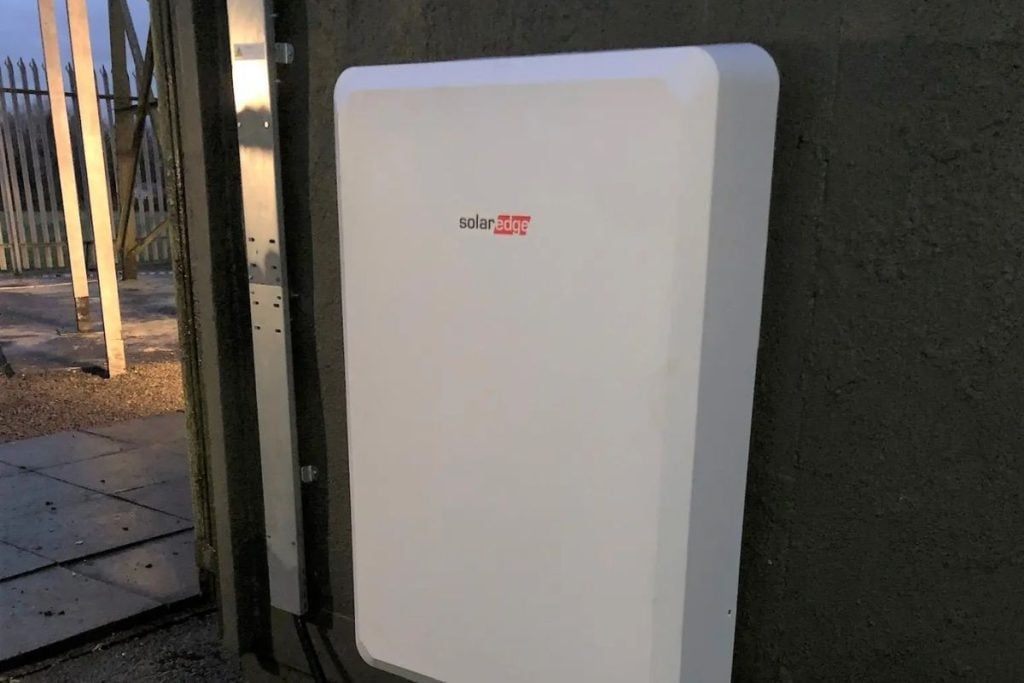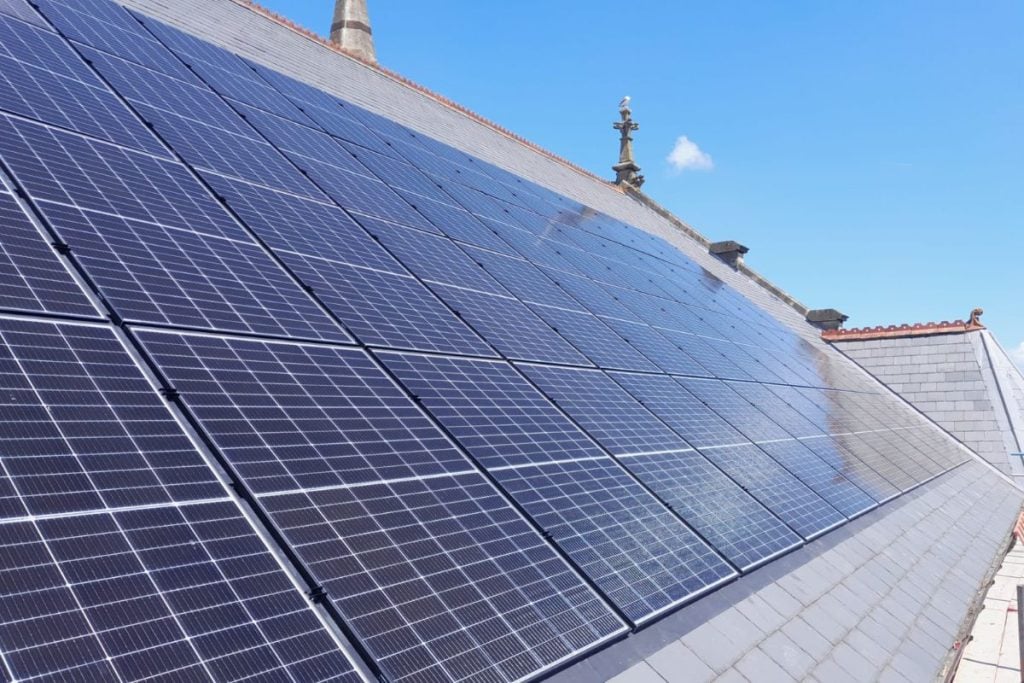Solar panels are a fantastic source of renewable energy, that is, until sunset. This is where battery energy storage systems (BESS) come in.
Battery storage makes it possible to store electricity from solar panels for any time of day. Across Europe, these systems are being installed at record-breaking speed with 21.9GWh of new batteries in 2024 alone, enough to power roughly 8,100 homes for a year.
If you’re considering solar battery storage for your commercial building or home, read on to learn how these systems work.
How Does Battery Storage Work With Solar PV Systems?
Solar panels convert sunlight into electricity that you can use to power your home or business. While your solar PV system can generate electricity, you’ll need batteries to store it.
Battery storage is integrated with your solar array. When your solar panels generate excess energy, this is stored in your batteries for use later on, for example, at night or in overcast conditions.
Having a battery storage system can give you access to a continuous energy supply and is a great way to make the most of your solar PV system, improving efficiency and reducing your environmental impact.
You can learn more about how battery storage works in this video:
What Are the Advantages of Solar Battery Storage?
Whether you’re motivated by sustainability or want to reduce your energy bills, here are four advantages you can gain from solar battery storage for your organisation or home:
1. Make Optimal Use of Your Solar Energy
By storing your excess solar generation, battery storage systems make sure the power you generate doesn’t go to waste.
If you’re curious about how much energy your solar panels are generating, or want to understand your energy consumption, intelligent battery storage systems can give you 24/7 monitoring and reporting. It’s easy to check up on your solar PV, either online or via a mobile app.
2. Reduce Your Carbon Footprint
Integrated solar battery storage allows you to go further in reducing your carbon footprint and powering your business or home with sustainable energy. With batteries, you can access a constant flow of electricity from your solar array, regardless of the time of day.
Battery storage is also more sustainable in that it helps you make the most of the solar panels you have, reducing wastage and the need to import energy from the national grid.
3. Generate Higher Savings
Many people will invest in battery storage to realise energy savings over time. With free solar energy whenever you need it, you can reduce your energy bills. Even if your solar panels don’t generate enough electricity to power your commercial building or home all the time, battery storage can still help you save.
For example, many UK energy suppliers will offer discounted rates during off-peak hours. With battery storage, you can import this energy during the night at cheaper rates and use it during the day.
4. Enhance Your Energy Independence
If you want to make your organisation or home more self-sufficient, battery storage will decrease your dependence on the national grid. In the last few years, we’ve seen energy bills surge in the UK, partly driven by the war in Ukraine. Battery storage can give you peace of mind and resilience in an unpredictable energy market.
In the case of power cuts too, having battery storage gives you backup options and the confidence that you’ll still be able to power key parts of your home, business or organisation.
Curious about how battery storage can work in your business or home? Find out more about our battery storage systems and renewable energy installation services here.

What Are the Disadvantages of Solar Battery Storage?
To give you a balanced perspective and help you decide on whether solar battery storage is right for you, let’s look at two disadvantages of these systems:
1. Initial Outlay
There is no question that solar battery storage can be expensive. The cost of battery storage will vary depending on the model you choose, the size of your system and the needs of your organisation or home.
The UK government has set a target of installing up to 27GW of battery capacity by 2030, six times the 4.5GW currently available. Renewable energy grants are available to help businesses and homes achieve this, as well as financing options to cover some of the costs of your project.
2. Battery Life
As with all batteries, solar batteries will degrade over time. As batteries age, their capacity decreases. While solar panels can last up to 25 years, you will likely need to replace your battery storage sooner. Regular maintenance can help prolong the life of your batteries.
What Is the Lifespan of a Solar Battery?
Solar batteries will typically last for 5-15 years. This will depend on the type of battery you’re using, the brand and how you use it. In general, storage systems use lithium-ion batteries, which have a longer lifespan and higher efficiency than regular batteries.
Can You Add Batteries to an Existing Solar PV System?
Lastly, a common question we get asked is how to integrate batteries into an existing solar array. Retrofitting battery storage is possible, and the specifics of how you can do this will depend on your current system’s configuration and compatibility with storage technology.
One of the challenges we see can be when a solar PV system doesn’t have a hybrid inverter installed. If this is the case, you’ll need to swap your existing inverter for a hybrid or AC inverter.

Making the Most of Your Solar Panels
We hope this post has left you feeling confident, understanding how solar battery storage works. Remember, solar panels can only provide energy in sunlight. For an uninterrupted flow of electricity, you will need battery storage.
When you’re ready to power your commercial building or home with eco-friendly, renewable energy, we’re here to support you. Find out more about integrating battery storage, renewable energy installation and our consultancy services here.
Ready to get started? Get in touch with our Cardiff-based team here or call us at 02922 52 00 33.





